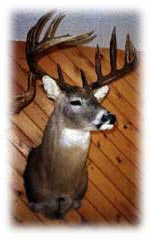| Hunting | |
| Adventure | |
| History | |
| Environment | |
| Getting Around | |
| When to Go / Events | |
| Travels | |
| Attractions | |
| Travel Stories | |
| Our offer | |
| Contact us | |
 |
|
Oval-shaped Romania is the third-largest Eastern European country, behind Russia and the Ukraine. It lies on the Black Sea and, moving clockwise from the south, shares borders with Bulgaria, Serbia & Montenegro, Hungary, Ukraine and Moldova.
The forested Carpathian Mountains account for one third of the country's area; another third is covered by hills and tablelands full of orchards and vineyards; and the final third comprises a fertile plain where cereals, vegetables and herbs are grown.
The Carpathian mountains boast the least spoilt forests in Europe, rich in beech, sycamore, maple, poplar and birch. Some 1350 floral species have been recorded in the Carpathians, including the yellow poppy, Transylvanian columbine, saxifrage and edelweiss. Romania has 13 national parks, including the Retezat Mountains in the Carpathians, and more than 500 protected areas. If people didn't prosper under Ceausescu, bears did! He allowed no one but himself to hunt them, the result being that the Carpathian mountains are now home to 60% of Europe's bears. Some 40% of Europe's wolves and 35% of its lynx also live there, along with stag, wild boar, badger, deer, fox, and the green woodpecker, jay and grey owl.
Romania's main drawcard for twitchers is the Danube Delta, home to 60% of the world's small pygmy cormorant population, the white grey egret, bee-keeper and white-tailed eagle. Half the world's population of red-breasted geese winter here.
The protected delta has the largest unbroken reed bed in the world. You don't go to Romania for the weather. The average annual temperature is 11°C in the south and on the coast, but only 2°C in the mountains. Romanian winters can be extremely cold and foggy, with lots of snow from December to April. In summer there's usually hot, sunny weather on the Black Sea coast. The majority of Romania's rain falls in the spring, with the mountains getting the most, the Danube Delta the least.
< Back